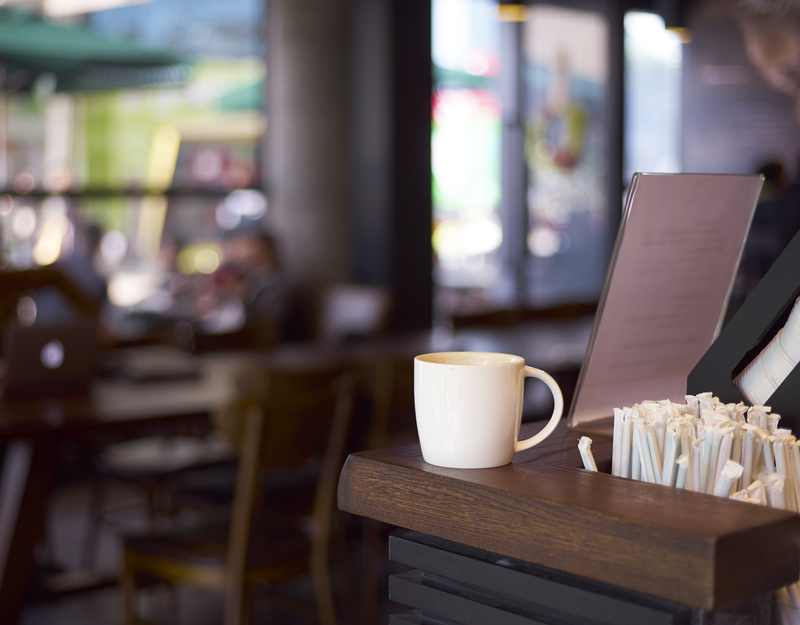Limitless Possibilities: Transforming Waste Materials into Everyday Wonders
The world faces an ever-growing challenge: sustainability. As urbanization accelerates and consumption increases, waste management has become a significant concern. Yet, with innovation, creativity, and technology, transforming waste materials into everyday wonders is becoming a reality. This article explores the limitless possibilities in upcycling, recycling, and reimagining the objects we often discard, turning them into valuable resources and solutions for a greener future.

Understanding the Waste Problem: An Urgent Call to Action
Globally, humans generate more than 2 billion tonnes of solid waste each year, with at least 33% not managed in an environmentally safe manner. Landfills overflow, oceans choke on plastic, and incineration contributes to air pollution. The environmental, economic, and health impacts are staggering. But within this challenge lies an extraordinary opportunity: turning waste into resources and reimagining our approach to consumption and production.
What Does it Mean to Transform Waste?
Transforming waste materials means more than just recycling. It encompasses a spectrum of practices that redefine waste as valuable. These include:
- Upcycling - converting discarded materials into products of higher value or quality
- Recycling - reprocessing materials to make new items
- Repurposing - finding new uses for items that might otherwise be thrown away
- Creative Innovations - integrating waste into industrial, urban, or artistic design
From Trash to Treasure: Exciting Innovations in Waste Transformation
Below are compelling examples that underscore the limitless possibilities of turning waste materials into everyday wonders:
1. Plastic Bottles: Building Blocks of Change
Plastic waste is a well-documented menace to marine life and ecosystems. However, innovators around the globe are transforming this liability into assets:
- EcoBricks: Used plastic bottles filled with non-biodegradable waste become sturdy building materials for schools and homes in developing countries.
- Recycled Construction Panels: Companies are manufacturing durable fencing, decking, and roofing from recycled plastics, providing affordable and sustainable building alternatives.
- Fashion and Textiles: Creative entrepreneurs upcycle PET bottles into sustainable fabrics, producing clothing, bags, and footwear.
Case Study Highlight: The Adidas Parley project has produced millions of pairs of shoes using plastic collected from ocean cleanups, demonstrating how waste can become high-performance everyday products.
2. Food Waste: Nourishing People and Planet
Globally, a third of all food produced is wasted, even as millions face hunger. Transformative solutions, both technological and community-based, are tackling this:
- Biofertilizers and Compost: Municipalities and farmers turn food scraps into nutrient-rich soil amendments, reducing landfill loads and enhancing crop yields.
- Biogas: Decomposing food waste in anaerobic digesters produces renewable energy for cooking and electricity, particularly effective in rural communities.
- Upcycled Edibles: Companies craft snacks, sauces, and beverages from produce that would otherwise be discarded due to cosmetic imperfections.
Did you know that in the United States alone, upcycled food companies prevent hundreds of tons of surplus bread, fruit, and grains from entering landfills every year?
3. Electronic Waste: Mining Urban Gold
With rapid technological advancement comes the staggering growth in electronic waste (e-waste). Valuable metals and components are often lost, but forward-thinking methods are reversing this trend:
- Material Recovery: Specialized facilities extract gold, copper, and rare earth metals from discarded electronics, supplying raw materials for new devices.
- Refurbishing and Repurposing: Laptops, phones, and other electronics gain new life through refurbishment programs, closing the loop and bridging the digital divide.
- Art and Jewelry: Designers reshape circuit boards, wires, and components into wearable art and innovative decor.
Fun Fact: One tonne of discarded mobile phones yields more gold than one tonne of gold ore!
Rethinking Everyday Materials: Waste as a Resource
Whether it's plastic, paper, glass, or organic scraps, transforming waste into everyday wonders begins with a shift in mindset. The circular economy model encourages designing products and processes so that materials can cycle back into use, minimizing environmental impact and fostering innovation.
Creative Homes and Furniture
- Pallet Furniture: Discarded wooden pallets are creatively upcycled into beautiful tables, chairs, and beds, popular in DIY circles and urban lofts.
- Glass Bottle Walls: Used bottles become radiant, energy-efficient architectural elements in eco-friendly homes and restaurants.
- Recycled Steel Decor: Old car parts and machinery scraps are welded into functional art and home accessories.
Transforming Urban Landscapes
Governments and individuals are integrating waste-derived materials into city infrastructure:
- Rubberized Asphalt: Old tires are processed into road surfaces that reduce noise and last longer than conventional materials.
- Recycled Street Furniture: Benches, bins, and play equipment crafted from plastic waste, enhancing public spaces and reducing pollution.
The Role of Technology in Waste Transformation
Modern technologies amplify our ability to unlock value from waste materials. Here's how:
Smart Sorting Systems
- Artificial Intelligence (AI): Automated AI-driven sorting lines separate recyclable materials with unprecedented efficiency, reducing contamination and maximizing recovery rates.
- Sensor-Based Sorting: Infrared sensors and robotics identify and sort plastics, metals, and even textiles at high speed.
Innovative Recycling Techniques
- Chemical Recycling: Breaks plastics down into their molecular components, ready to be remade with quality almost equal to virgin materials.
- Upcycling Enzymes: Bioengineered enzymes can rapidly degrade plastic waste to be reconstituted into new products.
3D Printing with Recycled Materials
- Waste plastics and even wood dust are being processed into filaments used for 3D printing, allowing for bespoke manufacturing with minimal environmental impact.
Environmental and Economic Benefits of Waste Transformation
The limitless possibilities of transforming waste materials stretch beyond environmental conservation. The ripple effects touch communities, economies, and global systems:
- Conservation of Resources: Reduces the need to extract new materials, saving energy, water, and habitats.
- Lower Greenhouse Gas Emissions: Diverting organic waste from landfills cuts methane emissions, while recycled materials often require less processing energy than virgin inputs.
- Job Creation: The recycling and upcycling industries are booming sectors, from local businesses to high-tech enterprises.
- Innovation and Competitiveness: Companies that embrace circular manufacturing often enjoy a competitive edge, enhanced brand value, and consumer loyalty.
How You Can Be Part of the Solution: Everyday Steps
Individuals play a pivotal role in transforming waste into daily wonders. Here's how you can make a difference:
Adopt the 5 Rs
- Refuse: Say no to single-use and unnecessary items.
- Reduce: Minimize what you buy and use.
- Reuse: Repair, repurpose, and upcycle objects whenever possible.
- Recycle: Follow local guidelines and clean recyclables to avoid contamination.
- Rot: Composting organic materials returns nutrients to nature.
Support Upcycled and Recycled Products
Buy from brands that embrace sustainability and clearly label their products as made from recycled or upcycled materials. Every purchase supports the market for sustainable manufacturing and encourages more companies to innovate in waste transformation.
Get Creative at Home
- Turn glass jars into storage containers or vases
- Upcycle old t-shirts into reusable shopping bags
- Make art or craft projects with everyday waste materials
Educate and Inspire Others
Share your experiences and knowledge about the limitless possibilities of transforming waste materials with friends, family, and your community. Host workshops, share resources online, and participate in local clean-up events.
Limitless Possibilities for a Brighter Tomorrow
Innovation is paving the way for a future where waste does not exist--only resources waiting for transformation. The movement to reclaim, repurpose, and revitalize waste materials is growing, touching every aspect of modern life.
- Engineering: Waste is a raw material for roads, buildings, and infrastructure.
- Art and Design: Creators express visions of sustainability through upcycled masterpieces.
- Business: New models reward environmental responsibility and circular design.
- Education: Future generations are learning the value of stewardship and creativity in solving global challenges.
Final Thoughts
The journey from waste to wonder begins with a fresh perspective. Each piece of "trash" has potential to become something valuable, useful, and even beautiful. By embracing limitless possibilities for transforming waste materials into everyday wonders, we contribute to a sustainable, inspiring, and resourceful world. The next time you hold a discarded object in your hand, ask not "what waste is this?" but "what might it become?"

Frequently Asked Questions
Why is transforming waste materials important?
It conserves natural resources, reduces pollution, saves energy, creates jobs, and offers innovative solutions to environmental challenges.
What items can easily be upcycled at home?
- Glass jars and bottles
- Old clothing and textiles
- Cardboard boxes
- Plastic containers and bags
How can businesses participate in waste transformation?
By implementing circular design, sourcing recycled materials, setting up take-back programs, and collaborating with upcycling innovators, businesses can actively champion waste-to-wonder initiatives.
Resources & Further Reading
- The Ellen MacArthur Foundation: Circular Economy
- EarthDay.org: The World Waste Crisis
- EPA: Recycling Basics
- Upcycled Food Association
Together, we can turn the vision of a zero-waste world into reality--one everyday wonder at a time.
